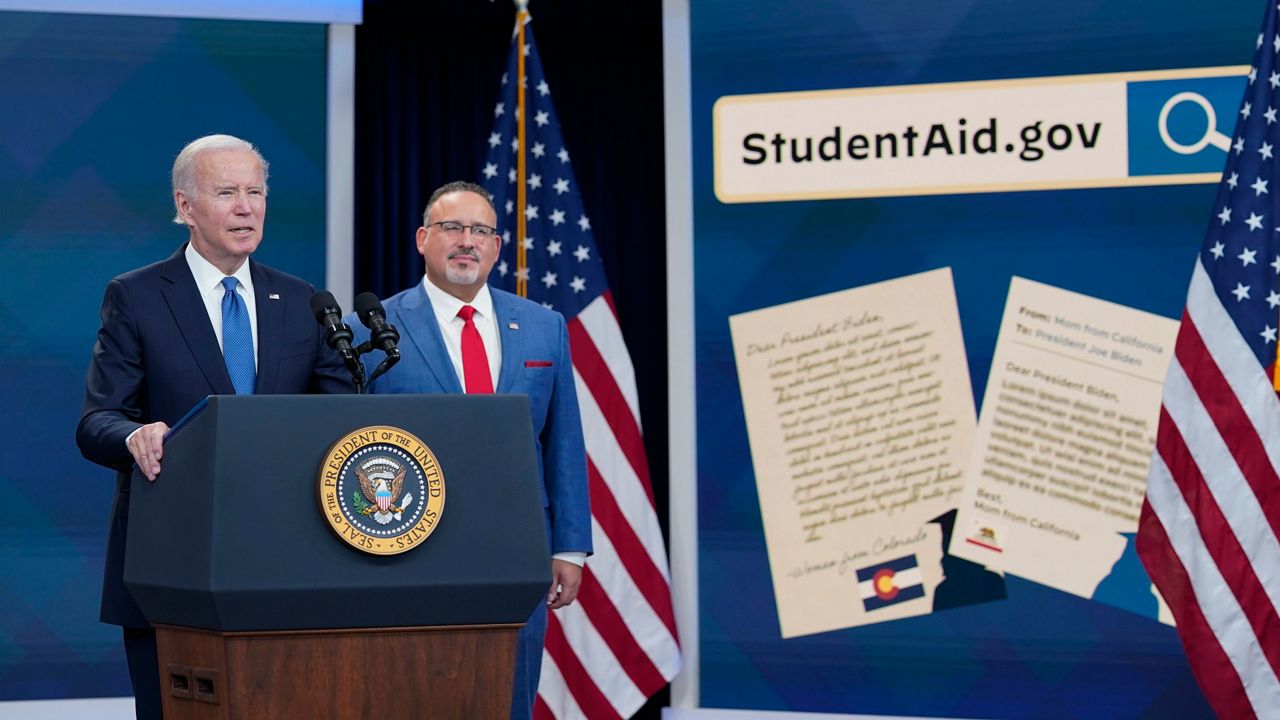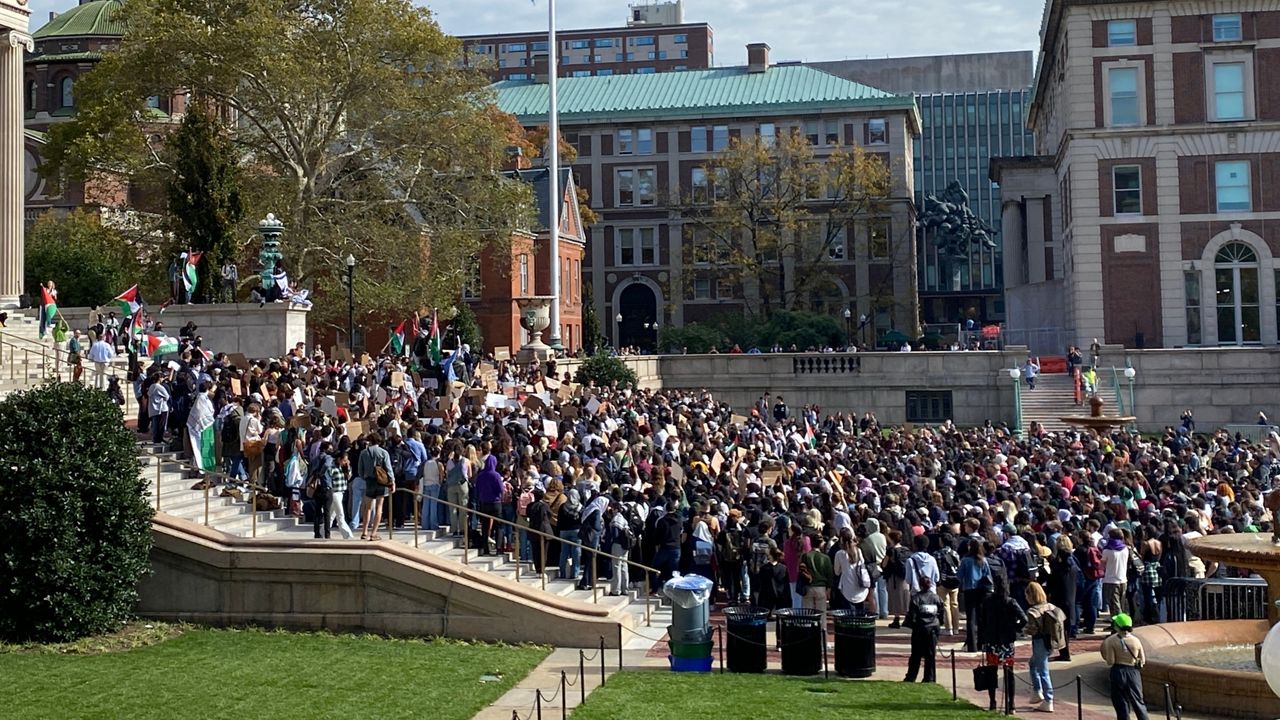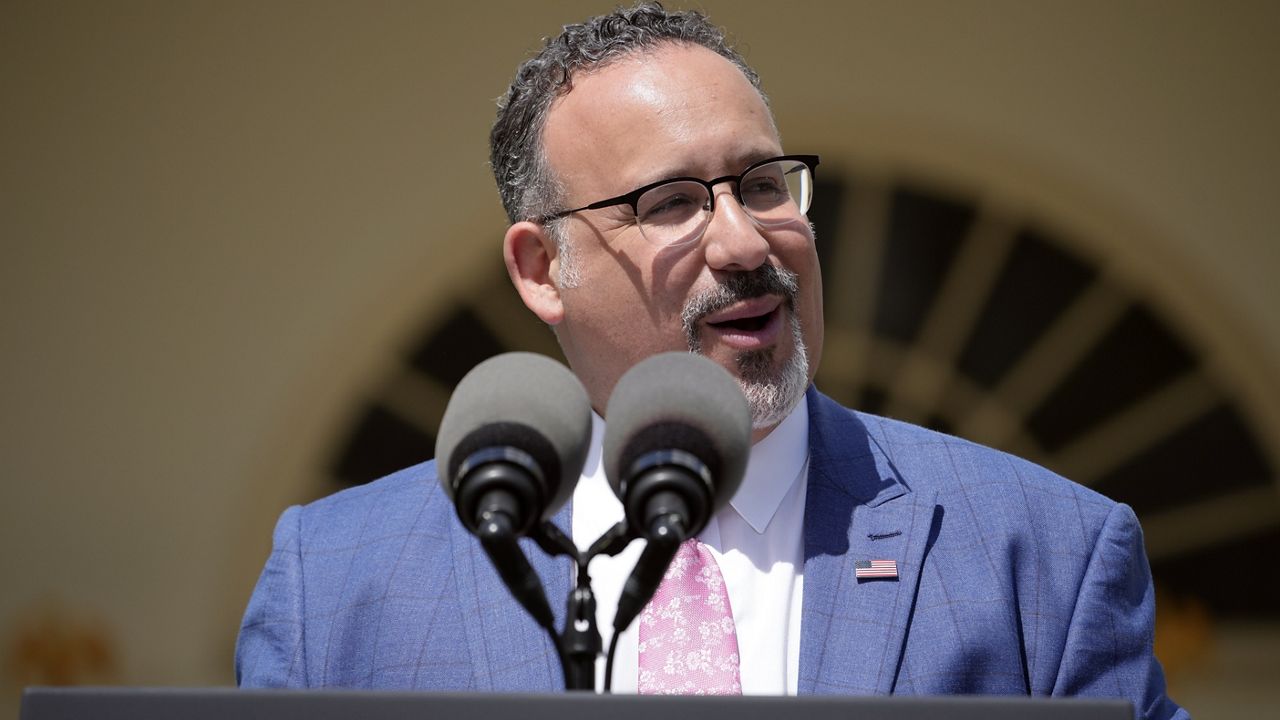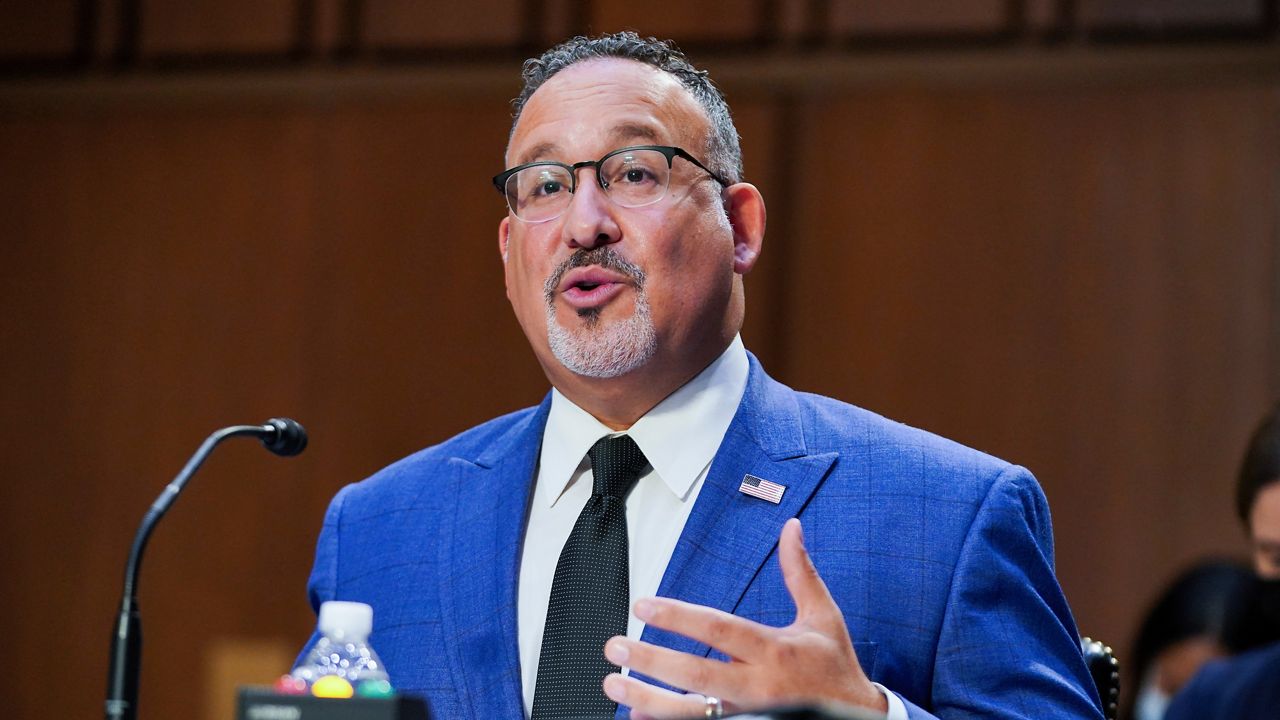With the Supreme Court set to rule on the fate of President Joe Biden’s plan to cancel up to $20,000 in student debt for millions of borrowers nationwide, Education Secretary Miguel Cardona told Spectrum News he is “confident” that the plan will move forward.
The Supreme Court in February heard arguments in two lawsuits challenging Biden’s plan to eliminate $10,000 in federal student debt forgiveness to those with incomes of less than $125,000, or households earning less than $250,000. Pell Grant recipients, who come from low-income families, would be eligible for an additional $10,000 in relief.
The plan could affect around 43 million Americans and entirely clear the balances of about 20 million. The Congressional Budget Office has said the program will cost about $400 billion over the next three decades.
In the lawsuits, the plaintiffs argued that the Biden administration overstepped its authority because it bypassed Congress and that it failed to follow the proper procedures for establishing the rule. One lawsuit was filed by six Republican-led states, the other by two student loan borrowers in Texas — one who is ineligible for forgiveness entirely and one who is ineligible for the full $20,000.
The Biden administration said it is well within its rights to implement the program based on the Higher Education Relief Opportunities for Students Act of 2003, commonly known as the HEROES Act. The law allows the education secretary to modify or waive loan provisions during a national emergency — in this case the COVID-19 pandemic.
Despite that the high court’s conservative justices appeared skeptical about the Biden administration’s plan, Dr. Cardona projected confidence that the plan’s legal authority is sound.
“We put the best legal argument forward,” Dr. Cardona said. “The HEROES Act does give me the authority, just like it gave the last administration, the authority to pause loans, and I use that same authority to extend the pause and to provide targeted debt relief.”
“I know we have the legal authority, I'm confident that we're gonna move forward with it,” he added.
The high court is set to issue a ruling in June or early July.
Dr. Cardona acknowledged the skepticism expressed during February’s hearing, but doubled down on his confidence about the path forward. “We’re prepared,” he said.
“The 43 million Americans who are coming out of the pandemic could use some support,” he said. “Small businesses receive support, there was not a peep. When corporations and billionaires receive tax breaks, there wasn't a peep. So when we're putting 90% of our dollars in this plan to people making less than $75,000 a year, we should be in support of this. More has been done in the past to help billionaires than regular hardworking Americans who are trying to make it through education, and we owe them just as much as we owe others.”
When asked if there was an alternative should the Supreme Court strike down the plan, Cardona demurred.
“Right now, the focus is on getting through the Supreme Court and having a favorable decision,” he said. “But make no mistake … at the Department of Education, we're going to stay laser-focused on providing support for students and our actions will continue to be that way.”
Dr. Cardona also addressed the restart of student loan payments, which is codified in the bill that President Biden negotiated with House Speaker Kevin McCarthy to raise the debt limit. Should the bill be signed into law, the pause will end 60 days after June 30, so borrowers will need to begin making payments once again after August 29.
He acknowledged the “anxiety” that comes with having to make payments again after a three-year pause and said that the Education Department is working to “improve” their systems to make them more user-friendly “and to guide them every step of the way.”
“We're providing support for them, if they're struggling, we're rolling out a new income-driven repayment plan so their payments are more reasonable and manageable,” he said.
“We're not going to stop fighting for affordable and accessible higher education,” Cardona added. “To date, we've provided over $55 billion in approved debt relief, we're making sure that we're putting the borrower first, and we're also increasing accountability at colleges to make higher education more affordable and improve the return on investment.”
“To the borrowers, I would say, we're going to keep you first, we're going to continue to find ways to support you, and we're going to make the onramp to repayment as painless as possible and guide you every step of the way,” he concluded.
Spectrum News' Ryan Chatelain contributed to this report.










